Developing high-tech agriculture is an inevitable trend. |
Promoting modern agriculture and food security
The Government affirmed that extending the agricultural land use tax exemption policy until 2030 is necessary to institutionalize the policies of the Party and State, especially Resolution No. 18-NQ/TW, Resolution No. 19-NQ/TW, Conclusion No. 54-KL/TW, and Conclusion No. 81-KL/TW, emphasizing the strategic role of agriculture, farmers, and rural areas in industrialization, modernization, as well as ensuring national food security.
The government stressed that this policy is consistent with the 2013 Constitution, which stipulates that land is public property managed by the State, and the National Assembly has the right to decide on tax policies.
The government said the tax exemption will encourage organizations, households and individuals to invest in agriculture, promote farm economy, build large fields, and shift the agricultural structure towards modernization, applying science and technology to improve productivity and product quality.
Furthermore, the Government assessed that over the past 30 years of implementing the Law on Agricultural Land Use Tax in 1993, the tax exemption and reduction policy has brought about positive impacts. The average total tax exemption and reduction reached VND 3,268.5 billion per year from 2001 to 2010, VND 6,308.3 billion per year from 2011 to 2016, VND 7,438.5 billion per year from 2017 to 2020, and VND 7,500 billion per year from 2021 to 2023.
The government asserted that this policy has directly supported farmers, encouraged investment, improved rural livelihoods, and enhanced the competitiveness of agricultural products in the international market, with agricultural export turnover increasing from 4.7 billion USD in 2001 to 53.22 billion USD in 2023. The government stressed that the tax exemption is in line with international practices, such as in Ireland, the UK, and some OECD countries, and does not violate commitments in the WTO, CPTPP, and EVFTA.
The Government proposes to extend the agricultural land use tax exemption policy under Resolution No. 55/2010/QH12, Resolution No. 28/2016/QH14, and Resolution No. 107/2020/QH14 until December 31, 2030, applicable to organizations, households, and individuals directly using land for agricultural production, except for land managed by organizations but assigned to other individuals and organizations for production under contracts. The government said that this policy does not reduce budget revenue because it has been applied since 2001, and at the same time creates direct financial resources for farmers, promotes large-scale production, ensures food security with the goal of stabilizing 3.5 million hectares of rice land by 2030. The government emphasized that this policy contributes to encouraging land accumulation, developing farm economy, and increasing the added value of agricultural products, meeting the requirements of international economic integration.
To ensure effective implementation, the Government commits to issuing detailed guidance documents, organizing propaganda and dissemination of the resolution, and allocating resources from the central and local budgets, along with other legal funding sources. The Government also said it will check, inspect, and supervise the implementation of the resolution, ensuring transparency and efficiency in tax policy management.
The Government affirmed that the policy of exemption of agricultural land use tax not only supports farmers but also promotes the restructuring of the rural economy, creates jobs, increases income, and contributes to the construction of new rural areas. The Government emphasized that the extension of this policy is consistent with international commitments, such as the WTO Agreement on Agriculture, meets the “green box” criteria, and is not contrary to the CPTPP or EVFTA. The Government proposed that the National Assembly consider and pass a resolution at the 9th Session to continue creating momentum for sustainable agricultural development.
Continued calls for policy improvement
The Economic and Financial Committee (ECF) said that the majority of opinions in the committee agreed on the need to extend the agricultural land use tax exemption policy until 2030, because this policy reflects the Party and State's policy in supporting agriculture, farmers, and rural areas, especially in the context of many difficulties in production and business. The ECF assessed that the tax exemption policy has encouraged investment in agriculture, with the increasing participation of large enterprises and corporations, applying science and technology and improving the quality of agricultural products. The ECF emphasized that this policy has not encountered any difficulties in implementation, is suitable for practice, and contributes to improving the competitiveness of Vietnamese agricultural products in the international market.
However, the UBKTTC believes that the extension of the general tax exemption policy does not fully meet the Party's policies, such as Conclusion No. 36-KL/TW and Resolution No. 18-NQ/TW, which require the development of an agricultural land use tax policy appropriate to the level of development, overcoming the situation of abandoned land, misuse of land, and promoting land accumulation. The UBKTTC recommends that the Government review and evaluate the current status of agricultural land use to design tax exemption and reduction policies as a tool to encourage proper and effective land use. The UBKTTC recommends excluding tax exemption for land abandoned for 2 years or more, land used for the wrong purpose, or without valid documents, in order to implement Directive No. 27-CT/TW on thrift and anti-waste.
Furthermore, the PCC expressed concern that continuing to issue a resolution instead of amending the 1993 Law on Agricultural Land Use Tax is inappropriate, as this law has many outdated provisions, such as calculating tax by kilogram of paddy, which are no longer suitable for the reality of agricultural production. The PCC requested the Government to accelerate research, summarize the implementation of the law, and submit amendments to the law at the 10th Session to ensure the sustainability and consistency of the legal system. The PCC emphasized that it is necessary to periodically evaluate the effectiveness of the tax exemption policy from the economic, farmer's life, and land use efficiency perspectives, in order to propose new policies that are more suitable to the current context.
Regarding the form of issuance, the PCC said that some opinions said that issuing a resolution outside the scope of the Law on Agricultural Land Use Tax, as implemented from 2011 to 2025, is not suitable for the requirements of long-term legal stability. The PCC proposed to consider legalizing the tax exemption policy to increase transparency and consistency. Regarding the project dossier, the PCC confirmed that the Submission and accompanying documents are basically complete according to Clause 1, Article 64 of the Law on Promulgation of Legal Documents, and are eligible for consideration by the National Assembly at the 9th Session.
Source: https://thoibaonganhang.vn/tiep-tuc-mien-thue-su-dung-dat-tao-dong-luc-cho-phat-trien-nong-nghiep-ben-vung-164114.html


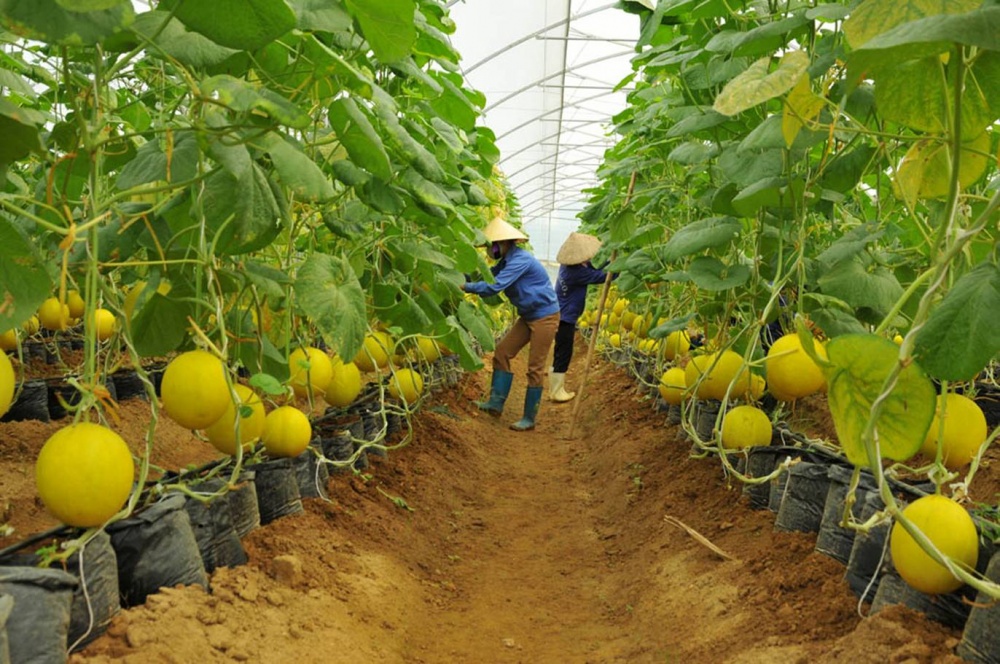
![[Photo] National Assembly Chairman Tran Thanh Man receives Chairman of the House of Representatives of Uzbekistan Nuriddin Ismoilov](https://vphoto.vietnam.vn/thumb/1200x675/vietnam/resource/IMAGE/2025/10/27/1761542647910_bnd-2610-jpg.webp)



![[Photo] The 5th Patriotic Emulation Congress of the Central Inspection Commission](https://vphoto.vietnam.vn/thumb/1200x675/vietnam/resource/IMAGE/2025/10/27/1761566862838_ndo_br_1-1858-jpg.webp)
![[Photo] Party Committees of Central Party agencies summarize the implementation of Resolution No. 18-NQ/TW and the direction of the Party Congress](https://vphoto.vietnam.vn/thumb/1200x675/vietnam/resource/IMAGE/2025/10/27/1761545645968_ndo_br_1-jpg.webp)
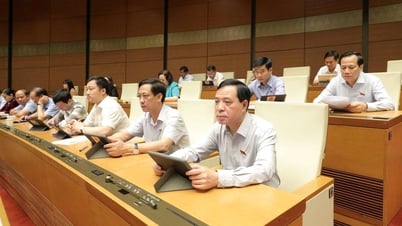

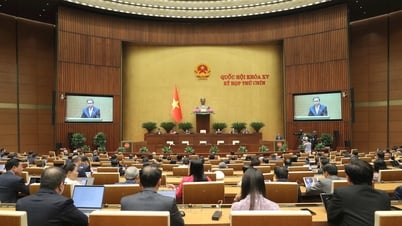
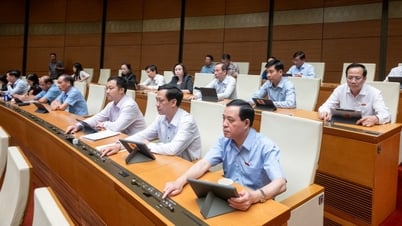
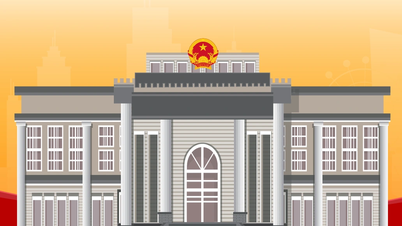

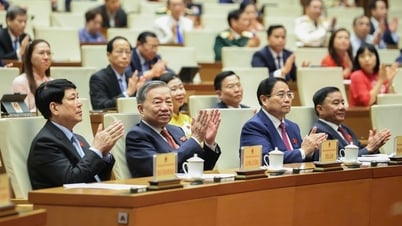

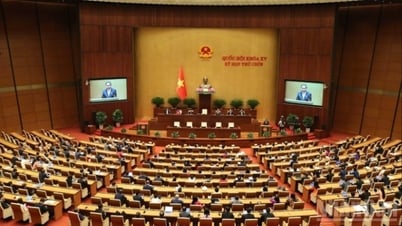

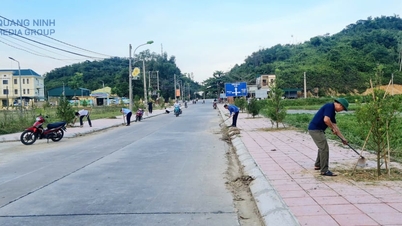

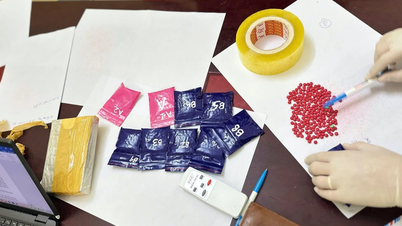
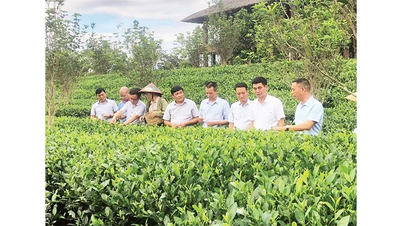
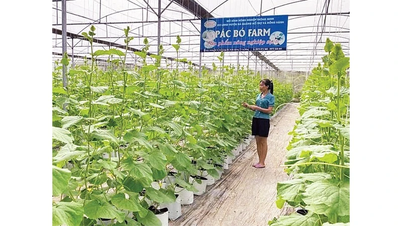
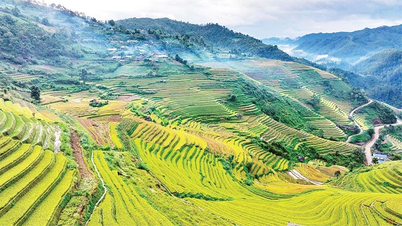

































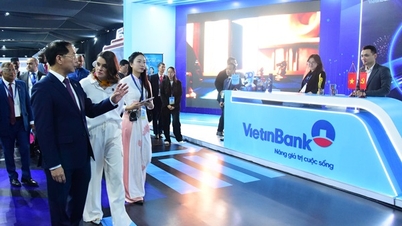













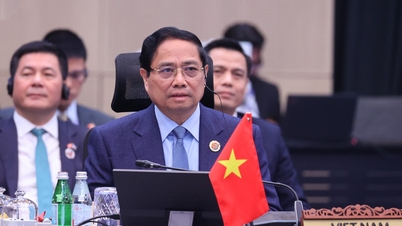







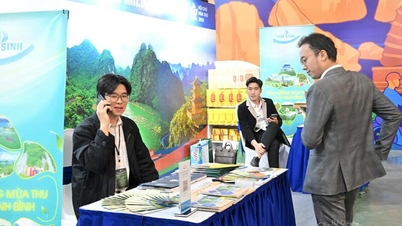


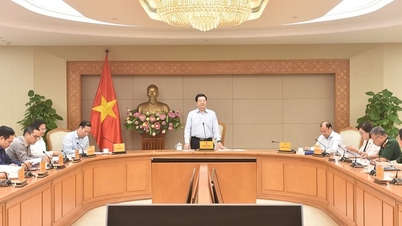

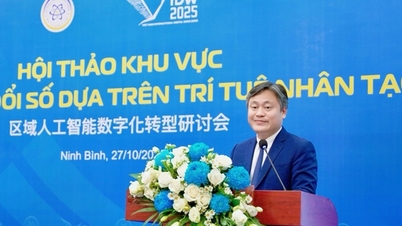
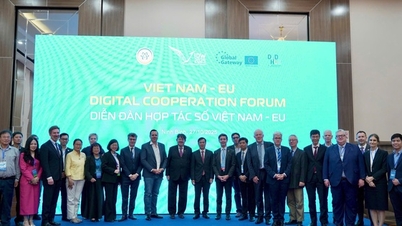
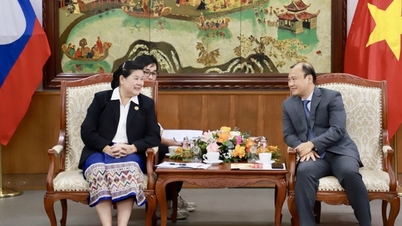
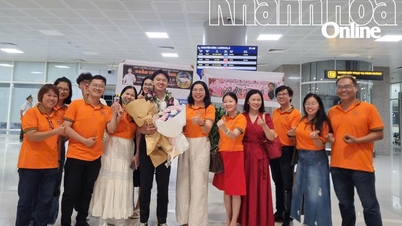



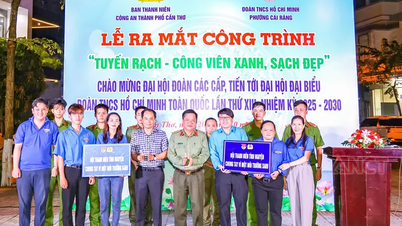
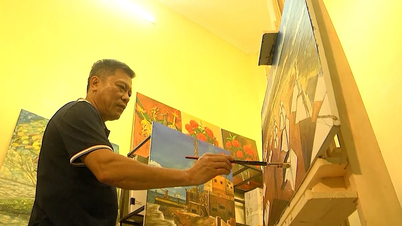


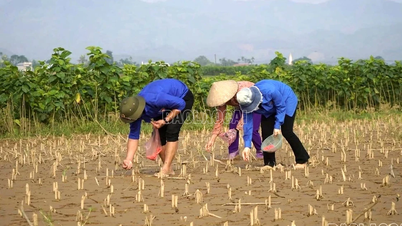
















Comment (0)